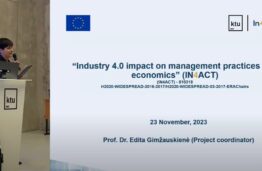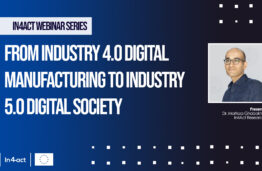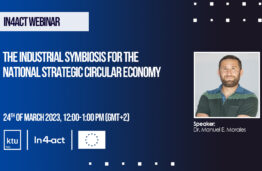ABSTRACT.
Purpose. The article aims to focus on the debate around the interplay between product innovation and servitization. Two conflicting approaches characterize the debate, disagreeing as to whether product innovation and servitization are complementary or not.
Design/methodology/approach. The authors examine two competing models proposing a direct effect of product innovation on servitization and an indirect effect through digitalization, using the sample of 500 manufacturing firms of a country participating in the European Manufacturing Survey, 2018 edition.
Findings. The results reveal that product innovation has no direct effect on servitization. However, the authors found that digitalization capabilities mediate the effect of product innovation and servitization. The present findings reveal that product innovation has a substantial indirect effect on servitization through digitalization capabilities, supporting the approach proposing the complementarity between product innovation and servitization.
Research limitations/implications. The data used in this paper correspond to a single country. The limited geographical sampling frame may likewise limit the generalizability of the findings. Researchers are encouraged to replicate the analysis with data from other countries, and to further enrich the analysis with complementary path options and resulting performance measures.
Practical implications. When applying a capabilities perspective, the authors find that product innovation capability is not directly related to servitization as capability. The present findings point toward the fact that if companies only have product innovation capability, this does not facilitate servitization. If companies have both product innovation capability and digitalization capability, such a situation facilitates servitization, a decision which often falls within managers’ responsibilities.
Originality/value. Existing studies focus on antecedents and/or outcomes of single issues, either product innovation, servitization or digitalization. Only some offer dual associations (product innovation and servitization, digitalization and servitization), and even less position simultaneously at the intersection of the three pillars. Herein lies the novelty of the present approach and analysis, which explains the extent to which product innovation, digitalization and servitization are related.









